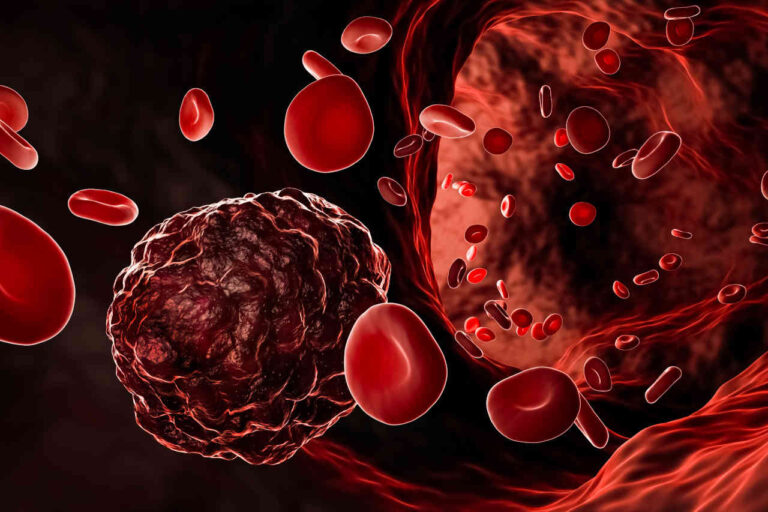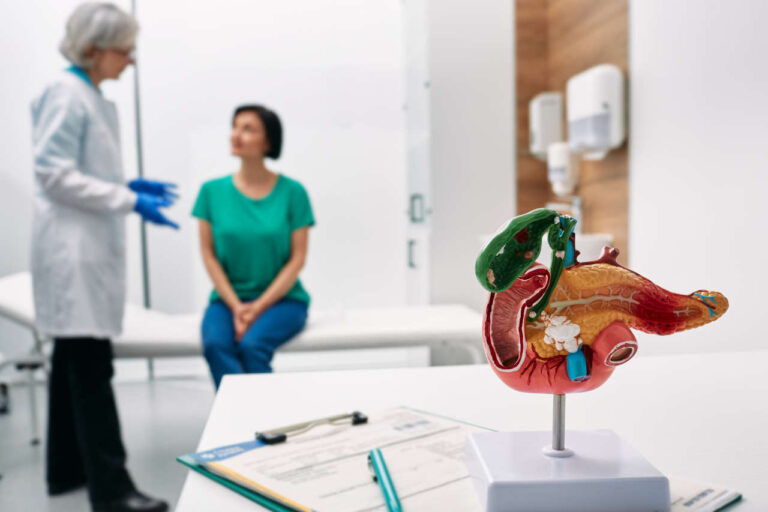
Keytruda, also known as pembrolizumab, is a prescription-based anti-cancer medication used for treating various types of advanced, persistent, recurrent, and metastasized (cancers that have spread) types of cancers in adults and children. It can be used alone or in combination with other medications, depending on the type of cancer being treated. It is given by intravenous (IV) infusion.
Get Financial Assistance for Keytruda
Before starting Keytruda (pembrolizumab), it is important to inform your provider:
- About your medical conditions and medications you currently take including any prescription, over-the-counter medications, herbal products, vitamins, or supplements.
- If you are suffering from any other chronic diseases, like hypertension, heart disorders, autoimmune disorders, thyroid disease, kidney or liver impairment, or diabetes.
- If you had an organ transplant.
- If you are allergic to any medications, preservatives, or foods.
- If you are considering taking any vaccinations or immunizations. Make sure you consult your provider first.
- If you are pregnant, planning to become pregnant, or breastfeeding.
What Is Keytruda Used To Treat?
Keytruda is used to treat the following types of cancers in adults:
- Skin cancer
- Recurrent or metastatic head and neck cancer
- Lung cancer
- Esophageal, stomach, and bladder cancer
- Liver and kidney cancers
- Breast cancer
- Endometrial cancer
- Lymphoma
- Cervical cancer
- Other solid tumors
In children, Keytruda is used to treat the following cancers:
- Skin cancer
- Lymphoma
- Solid tumors
Get Financial Assistance for Keytruda
Before starting Keytruda (pembrolizumab), it is important to inform your provider:
- About your medical conditions and medications you currently take including any prescription, over-the-counter medications, herbal products, vitamins, or supplements.
- If you are suffering from any other chronic diseases, like hypertension, heart disorders, autoimmune disorders, thyroid disease, kidney or liver impairment, or diabetes.
- If you had an organ transplant.
- If you are allergic to any medications, preservatives, or foods.
- If you are considering taking any vaccinations or immunizations. Make sure you consult your provider first.
- If you are pregnant, planning to become pregnant, or breastfeeding.
How Does Keytruda Work?
Keytruda is a monoclonal antibody that works by restoring the immune system and stimulating it to fight cancer cells. It blocks the PD-1 receptors, which inhibit the binding of PD-L1 and PD-L2. This leads to the activation of T-cell-mediated immune responses against cancer cells.
What Stage of Cancer Does Keytruda Treat?
Keytruda is used for treating various types and forms of advanced and metastatic-stage cancers. For example, it treats advanced urothelial and gastric cancers, and stage 2B, stage 2C, or stage 3 skin cancer in adults and children aged 12 years and older.
It is given alone in stage 3 lung cancer as a first-line treatment when the patient cannot have surgery, chemotherapy, or radiation.
Is Keytruda a Form of Chemotherapy?
No, Keytruda is not considered a type of chemotherapy. Rather, it is an immunotherapy medication that works by restoring the immune system to detect and kill specific cancer cells. Chemotherapy medications act directly on cancerous tumors to kill or stop them from dividing, which isn’t what Keytruda does.
Speak to a Specialist
About Copay AssistanceDose
The dose of Keytruda will depend on the type of cancer, your age, your medical condition, and your weight.
In general, the recommended dose is 200 mg once every 3 weeks or 400 mg once every 6 weeks.
How Is Keytruda Administered?
- Keytruda is commonly given by intravenous (into the veins) injection every 3 weeks.
- Keytruda should be administered slowly; it should take at least 30 minutes to administer the infusion.
- A healthcare professional will administer Keytruda at the provider’s office or infusion center.
- Your provider may administer some medication before injecting Keytruda infusion to avoid or prevent allergic reactions.
- Keytruda treatment may be required for up to 24 months and is commonly given until the cancer worsens or until you have too many side effects.
Side Effects
The common side effects include:

- Diarrhea
- Constipation
- Stomach pain
- Nausea
- Shortness of breath
- Decreased appetite
- Lack of energy
- Bone or muscle pain
- Fever
- Cough
- Rash
These common side effects typically go away on their own after receiving the medication for a while, but if they become too severe, don’t go away, or become too much to handle, contact your provider.
The severe side effects include:
- Signs of liver failure
- High blood sugar levels
- Bloody or cloudy urine
- Swelling in the feet, legs, or face
- Chills
- Low blood pressure
- Severe skin rashes
- Inflammation in the lungs
- Eye pain or vision problems
- Tingling, numbness, or burning pain in hands or feet
- Neck stiffness
- Any other unusual or intolerable side effect
Dosage Forms and Strengths
Keytruda is available in one dosage form and strength:
Dosage Form: Intravenous solution
Strength: 100 mg/4 ml
Keytruda Cost
The overall cost of Keytruda depends on various factors, like:
- The type and location of the pharmacy where the medication is purchased.
- The patient’s insurance plan coverage.
- The total dose of Keytruda intravenous infusion prescribed to the patient.
- The severity of the disease or stage of cancer.
- Other medical conditions and past medical history.
The cost of 25 mg/ml intravenous solution vial is approximately $5,747 for a supply of 4 ml.
Get Keytruda Copay Assistance
Speak to a SpecialistKeytruda Alternatives
Some other medications are available to treat these cancers, but your provider will decide which medicine will work best for you according to your disease, medical history, and cancer stage.
It is important not to switch to any other alternatives or stop your current medication therapy without proper consultation with your provider.
Some alternatives to Keytruda include:
- Atezolizumab
- Durvalumab
- Cetuximab
- Avelumab
- Ipilimumab
- Cetuximab
- Nivolumab
- Trastuzumab
Storage Guidelines
- The diluted solution of Keytruda should be stored for no more than 6 hours at room temperature from the time of dilution.
- If refrigerated, the diluted solution should be stored at 2°C to 8°C for not more than 3 days from the time of dilution. Before administration, allow the drug to come to room temperature if refrigerated.
- Do not shake the solution after taking it out of the refrigerator.
- Do not freeze.
Keytruda vs. Opdivo
Both Keytruda (pembrolizumab) and Opdivo (nivolumab) are immunotherapy medications that are used to treat various types of similar cancers, like esophageal, stomach cancers, liver cancer, bladder and colorectal cancer, lung cancer, and some others.
Opdivo can also treat mesothelioma, and Keytruda is also given for breast, cervical, and endometrial cancers and some solid tumors. Keytruda and Opdivo can be used alone or in combination with chemotherapy drugs according to the patient’s disease.
Both Keytruda and Opdivo are given by intravenous infusion over 30 minutes, but there is a slight difference in their dose intervals. Opdivo is administered once every 2, 3, or 4 weeks, while Keytruda is given once every 3 or 6 weeks.












